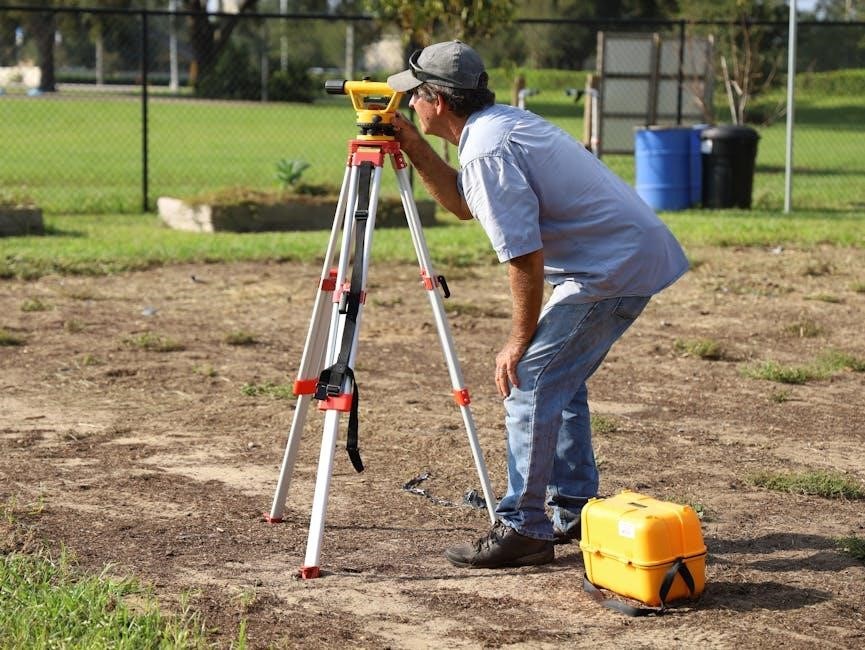The Florida Supreme Court develops standardized civil jury instructions, guiding jurors on legal principles with structured sections, ensuring clarity and consistency through regular updates for fair verdicts․
1․1 Overview of the Importance of Jury Instructions in Civil Cases
Jury instructions are critical in civil cases as they guide jurors on applicable laws and legal standards, ensuring verdicts align with statutory and procedural requirements․ These instructions clarify complex legal concepts, helping jurors evaluate evidence fairly․ They also promote consistency across cases and uphold the integrity of the judicial process․ Properly crafted instructions prevent misunderstandings and misapplications of the law, safeguarding the rights of all parties involved․ Regular updates ensure they reflect current legal standards and precedents․
1․2 Role of the Florida Supreme Court in Developing Jury Instructions
The Florida Supreme Court plays a pivotal role in developing standardized jury instructions for civil cases․ It oversees the preparation and updates of these instructions through its Standard Jury Instructions Committee․ The court ensures instructions are clear, accurate, and reflect current legal principles․ Regular revisions are made to incorporate legislative changes and judicial decisions, maintaining the integrity and adaptability of the instructions․ This process ensures consistency and fairness in how jurors apply the law during deliberations across the state․

Structure of Florida Civil Jury Instructions
Florida Civil Jury Instructions are organized into distinct sections covering oaths, preliminary instructions, and damages․ These structured guidelines ensure clarity and consistency, aiding jurors in understanding legal principles and their roles effectively․
2․1 Section 101: Oaths (101․1 to 101․4)
Section 101 of Florida’s Civil Jury Instructions outlines the oaths administered to jurors, ensuring their commitment to truthful testimony․ Subsections 101․1 and 101․2 detail the oaths before and after voir dire, respectively․ These oaths are crucial for maintaining the integrity of the jury process and upholding the principles of justice․ By standardizing these oaths, Florida ensures consistency across all civil cases, providing clear guidelines for jurors’ conduct and responsibilities․
2․2 Section 200: Preliminary Instructions (201․1 to 202․6)
Section 200 provides preliminary instructions for jurors in Florida civil cases, outlining their roles and responsibilities․ Subsections 201․1 to 202․6 cover foundational principles, such as the duty to follow the law, the importance of impartiality, and the process for deliberation․ These instructions ensure jurors understand trial procedures and legal standards, fostering a fair and informed decision-making process․ They are essential for setting the stage for jurors to evaluate evidence and apply the law effectively in civil matters․
2․3 Section 400: Damages (401․1 to 402․16b)
Section 400 outlines jury instructions for calculating damages in Florida civil cases․ Subsections 401․1 to 402․16b detail specific criteria for determining compensatory, punitive, and nominal damages․ Instructions guide jurors on evaluating evidence like medical expenses, lost wages, pain and suffering, and property damage․ They also address comparative negligence principles, ensuring jurors understand how liability impacts damage awards․ This section is crucial for ensuring fair and consistent damage assessments in civil trials, reflecting Florida’s legal standards and updates on negligence schemes․
The Jury Selection Process in Florida Civil Cases
The jury selection process in Florida civil cases involves voir dire, juror qualifications, and oaths, managed by the court and attorneys to ensure impartiality and fairness․
3․1 Voir Dire and the Oath of Jurors
Voir dire is the process of questioning potential jurors to assess their suitability for a case․ In Florida, jurors take an oath swearing to answer truthfully during this process․
The oath ensures jurors understand their duty to provide honest responses, avoiding bias․ This step is critical for forming an impartial jury and upholding fairness in civil proceedings․
3․2 Instructions for Jurors Before and After Voir Dire
Before voir dire, jurors receive preliminary instructions outlining their role and duties․ They are advised to remain impartial and avoid discussing the case․
Post-voir dire, selected jurors are sworn in and instructed on legal standards and procedures․ These instructions ensure jurors understand their responsibilities, fostering a fair trial environment․

Recent Updates to Florida Civil Jury Instructions
Updates include revised definitions of probable cause and comparative negligence, ensuring clarity and alignment with current legal standards for fair jury deliberations and verdicts․
4․1 Revisions to the Definition of Probable Cause
The Florida Supreme Court revised the definition of probable cause in civil jury instructions to enhance clarity and legal precision, ensuring jurors understand the threshold for liability․ This update reflects evolving legal standards and aims to prevent ambiguity in jury decisions․ The revised language aligns with statutory changes, providing a clearer framework for determining whether a defendant’s actions meet the required legal burden․ This revision promotes consistency and fairness in civil proceedings across Florida․
4․2 Updates on Comparative Negligence and Jury Verdicts
Recent updates to Florida’s civil jury instructions address comparative negligence, aligning with House Bill 837․ Juries now determine if a plaintiff’s fault exceeds 50% to bar recovery․ These changes ensure clarity in apportioning fault, impacting verdicts by requiring precise calculations of liability percentages․ The revised instructions guide jurors to assess damages proportionally, reflecting Florida’s adoption of modified comparative negligence․ This update ensures consistency and accuracy in jury decisions regarding fault allocation and damage awards․
Specialized Instructions for Contract and Business Cases
Florida’s civil jury instructions include specialized sections for contract and business disputes, providing clear guidance on liability, damages, and legal standards to assist jurors in complex cases․
5․1 Standard Jury Instructions for Contract Disputes
The Florida Supreme Court provides standardized jury instructions for contract disputes, outlining legal principles and definitions to guide jurors․ These instructions cover essential elements such as breach of contract, damages, and mitigation of losses․ They are designed to ensure jurors understand the legal standards and apply them consistently in their deliberations, promoting fairness and clarity in resolving business-related cases․

5․2 Business-Related Jury Instructions and Updates
Florida’s business-related jury instructions address corporate liability, negligence, and contractual obligations, ensuring jurors grasp complex legal concepts․ Recent updates align with evolving business laws, reflecting changes in comparative negligence and damages calculations․ These instructions are regularly revised by the Florida Supreme Court to maintain relevance and accuracy, providing clear guidance for jurors in business and contract disputes to reach informed decisions based on current legal standards․

The Role of the Florida Bar in Jury Instructions
The Florida Bar publishes and distributes civil jury instructions, ensuring accessibility and consistency for legal professionals․ It collaborates with the Supreme Court to update and refine them annually․
6․1 Publication and Distribution of Civil Jury Instructions
The Florida Bar is responsible for publishing and distributing civil jury instructions, ensuring they are widely accessible to legal professionals․ These instructions are updated annually and made available in various formats, including print and digital․ The Bar works closely with the Florida Supreme Court to ensure accuracy and relevance․ This collaborative effort guarantees that attorneys and judges have the most current guidance for civil cases, promoting consistency and fairness in the judicial process․
6․2 Committees on Standard Jury Instructions
The Florida Bar establishes committees dedicated to reviewing and refining civil jury instructions․ These committees, comprising legal experts, ensure instructions align with evolving laws and court decisions․ Their work involves updating language for clarity and relevance, addressing emerging legal issues․ This systematic approach ensures jurors receive precise guidance, fostering accurate understanding and fair outcomes in civil cases across Florida․ The committees’ efforts are integral to maintaining the integrity and effectiveness of the judicial system․
Resources for Building and Accessing Jury Instructions
The Florida Supreme Court and The Florida Bar provide official resources for accessing and building civil jury instructions, ensuring legal professionals have accurate and updated materials․
7․1 The Florida Supreme Court Website

The Florida Supreme Court’s website is a primary resource for accessing standardized civil jury instructions․ It provides updated versions, ensuring legal professionals have accurate materials․ The site includes detailed sections like oaths, preliminary instructions, and damages, along with recent revisions․ Users can find official publications, committee reports, and guidelines for constructing jury instructions․ This centralized platform streamlines legal research, offering a reliable source for understanding and applying Florida’s civil jury instructions effectively in court proceedings․

7․2 Jury Instructions Builder by the Southern District of Florida
The Southern District of Florida offers a Jury Instructions Builder, a tool designed to streamline the process of creating customized jury instructions․ Based on the Civil Pattern Jury Instructions, it allows legal professionals to efficiently build, organize, and export instructions tailored to specific cases․ This resource enhances clarity and precision, ensuring that jurors receive accurate and relevant guidance․ It is a valuable asset for attorneys and judges, promoting consistency and efficiency in civil proceedings․
